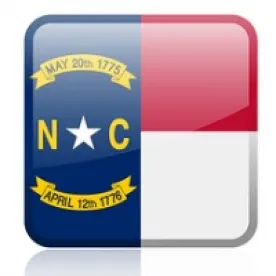A landmark legal opinion written by a fabled judge. A titanic battle between forces of the agrarian past and the industrial future. The construction of a gleaming bridge across a winding river in the wilderness – with no roads connecting the bridge on either side. The bridge built in the face of a repudiated contract. A baron of industry. Properties initially developed by North Carolina’s legendary John Motley Morehead. Two separate groups claiming to be the legitimate board of county commissioners. Democrats, Republicans.
It happened in Rockingham County, North Carolina. The case was Rockingham County v. Luten Bridge Company, 35 F.2d 301 (4th Cir. 1929).
Behind it all sits the perennial North Carolina policy debate, still current: should public funds be levied and invested to build the infrastructure of a new economy and how? How should infrastructure and the education of the people be provided for?
I have just become aware of the great telling of that story and the rooting out of its many facets in A Bridge, a Tax Revolt, and the Struggle to Industrialize: The Story and Legacy of Rockingham County v. Luten Bridge Co., by Barak Richman, Jordi Weinstock, and Jason Mehta, 84 North Carolina Law Review 1841 (2006).
Well done. There’s only a hint of sex, or it coulda been a movie.




 />i
/>i
